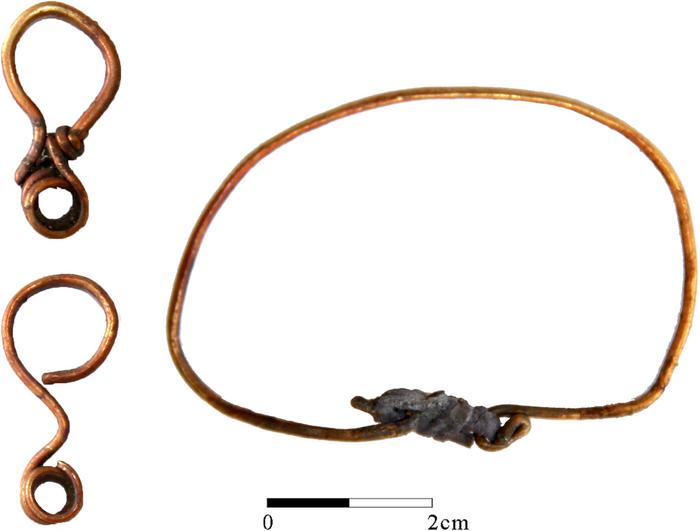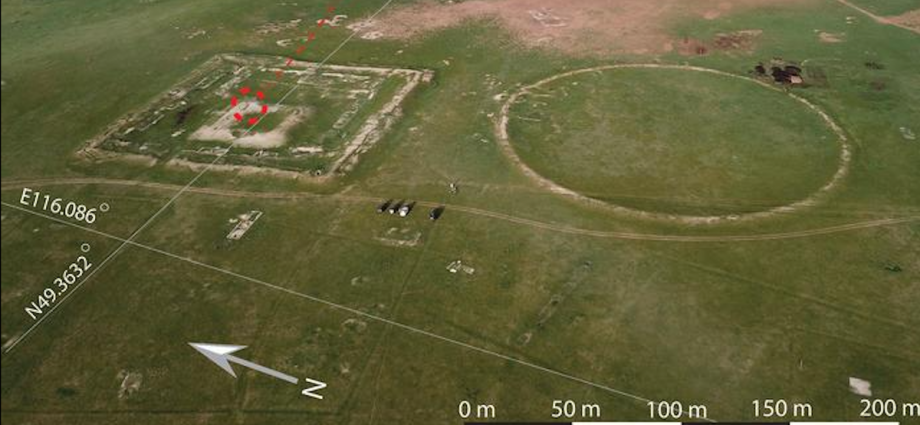An “elite grave” from the 12th century uncovered in Mongolia sheds fresh light on the poorly understood period before the rise of the world’s greatest conqueror, Ghengis Khan.
The grave, now called the Khar Nuur burial, was built in the years between the collapse of the Khitan Empire around 1125AD and the rise of the Mongol Empire in 1206AD.
Historical records of this era are mostly restrospective accounts written decades or even centuries after Ghengis Khan established the Mongol Empire.
The Khitan Empire, which was established in the 10th century and covered most of eastern and central Mongolia at its peak, started collapsing in the early 12th century.
A short period of conflict followed after which the Mongols under Ghengis Khan rose to power in about 1206AD.
But what exactly happened between 1125AD and 1206AD is poorly understood. “Any new information on issues such as the identity of people active in this region during the 12th century, their cultural, commercial, and political affiliations is of great interest,” scientists studying the gravesite said.

The ongoing study, a part of which was published recently in the journal Archaeological Research in Asia, is analysing a series of long walls and linked structures spanning around 4000km in Mongolia, northern China and Russia built between the 11th and 13th centuries.
It is unclear when exactly the structures were built, who built them, and what their intended function was.
At a section called Khar Nuur in Mongolia, researchers found a noble woman’s tomb within the enclosure wall of a fortress from the Khitan era.
The “elite grave” was created between 1158 AD and 1214 AD when the fortress was already in use. “This burial context raises important questions about the dynamics of funerary practice and social memory during a time of imperial collapse and transformation,” scientists said.
Researchers suspect the choice to bury the woman inside the fortress could be a “poignant symbol of identity, memory, and power in a time of transition”.
The woman’s skeletal remains show signs of mild osteoarthritis in joints and spine conditions, hinting that she had an active lifestyle.
She also seems to have lost nearly all of her teeth before death.
The woman was buried with a yellow silk robe and silk textiles were placed under her head.

There were also remenants of silk headgear, golden ornaments, beads made of different materials in the grave as well as fragments of a bronze vessel, a silver cup, a gold bracelet, and a sheathed iron knife.
“From the nature of this older woman’s burial, she probably belonged to a prestigious lineage of some political standing and her community was on the receiving end of wealth transfers,” scientists wrote.
They hypothesise that the burial may have been a “deliberate display of power” and possession of land by local communities during this conflict period.

The findings indicate that people inhabiting the Khar Nuur area during this time were involved in “macro regional political struggles”.
“The Khar Nuur burial represents a unique window into the complex social and political landscape of 12th century Mongolia,” study co-author Gideon Shelach-Lavi said.
“It demonstrates how local elites may have used symbolic connections to past empires to legitimise their own power and status, even as they navigated a rapidly changing political environment.”
Alternatively, archaeologists say nomads may have used the abandoned Kitan fortress for burial to assert their own claim over the land.
They hope further analysis of the burial will provide more insights into this pivotal transition period in world history.











